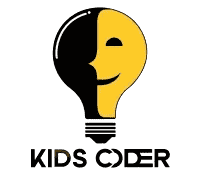Our primary goal as parents is to secure the best educational outcomes for our children. Sometimes, they experience challenges in certain learning areas which makes us question whether they require additional support. Psychological testing allows parents to discover how their child learns, while identifying their strengths and weaknesses. This blog will guide parents on when testing might be beneficial and how to make this critical decision.
Understanding educational assessments
Educational testing is a methodical exam meant to assess several aspects of a child’s educational ability, cognitive skill and emotional stability. This testing is done by trained professionals, such as psychologists and other specialist practitioners. Professional therapists conduct these tests as part of their complete services to assist children with their studies. These tests are not employed to label children but to understand how they learn.
Warning signs that your child might benefit from an assessment
Children develop at varying rates, yet certain warning signs suggest that an evaluation might be helpful. When children show continuous difficulties with reading or mathematics despite regular support their problems may indicate an underlying learning disorder. Significant disparities between verbal and academic skills, trouble with direction following, or difficulties with attention and concentration might also indicate an assessment would be helpful. Some therapists recommend assessments when these patterns persist following interventions.
Common types of testing
There are numerous types of educational assessments, each developed to assess specific elements of learning and development. Cognitive tests measure thinking, problem-solving, and processing information. Academic achievement tests assess a child’s reading, writing and mathematics compared to others, whilst psychological tests examine emotional status, attention, memory and executive functions. These detailed tests give the complete picture of how your child processes information and learns.
The process demystified
It usually begins with an initial consultation, during which you discuss problems with the therapist. After that, specially designed psychological tests are administered during one or more sessions. The psychologist or practitioner will arrange a comfortable environment to allow your child to perform optimally on tests. After this has been completed, results are matched and summarised in a comprehensive report, and then parents are presented with the results and recommendations with explanations.
Benefits of evaluations
Educational evaluations have numerous benefits beyond just describing challenges. They give a clear sense of your child’s personalised learning profile and enable teachers to design effective personalised plans. Evaluations can identify previously untapped abilities and talents that can be utilised by the student. For some children, this results in accommodations that can level the playing field with their peers. Collaborating with a perceptive therapist familiar with the process translates to many families reporting greater clarity and direction for educational decision-making.
When assessments are not needed
Not every learning problem requires formal testing. Interim problems resulting from transition, minor developmental delays that resolve with the passage of time, or normal differences in learning styles might not require testing. Periodic targeted intervention in the classroom or minimal adjustment in teaching styles might be enough to allay worry. Only after initial screening by teachers, and possibly a therapist, should a decision to obtain psychological tests be made.
Hiring the right professional
If you decide to proceed with an evaluation, making an appointment with a well-matched professional is essential. Look for licensed psychologists or educational specialists trained explicitly in assessing children. Ask how they have worked with your child’s specific needs, their method of testing, and how results are reported back. The rapport between your child and the person doing the evaluation is also a requirement to produce accurate results.
Getting the most from results
Assessment findings should result in feasible strategies. Work with your child’s school to put recommendations into practice, such as specialised instruction, classroom accommodations, or counselling. Regular follow-ups with the therapist who conducted the assessment can track progress and alter strategies as needed. Remember that assessment results take a snapshot, and children continue to grow and develop.
Helping your child through the process
It can be intimidating for children to be tested. Explain the process in good, simple terms and let them know that the tests will allow everyone to view how they can learn best. Don’t generate fear by framing it as an issue-solving device, which could make them feel less worthy or capable. A lot of children end up enjoying the one-on-one attention during the sessions. After testing, frame conversations on strengths that were discovered alongside any challenges.
Testing can be effective if used with caution and at the right time. It gives data that allows parents, teachers, and therapists to assist children in education more effectively. It is best considered when there are persistent problems and with the advice of individuals in the education sector. Working with a trained Bendigo therapist throughout the process can bring your family functional skills and emotional assistance. Keep in mind that testing is not about labelling limitations but finding the roads to achievement.


























